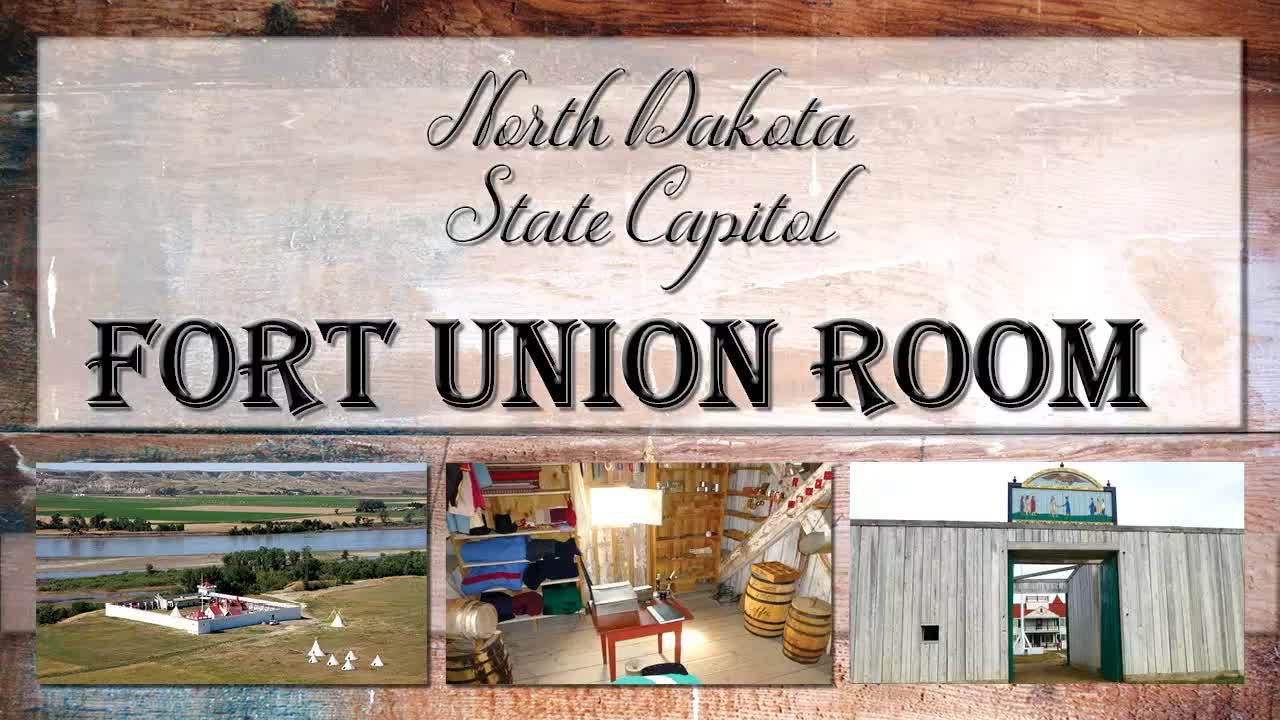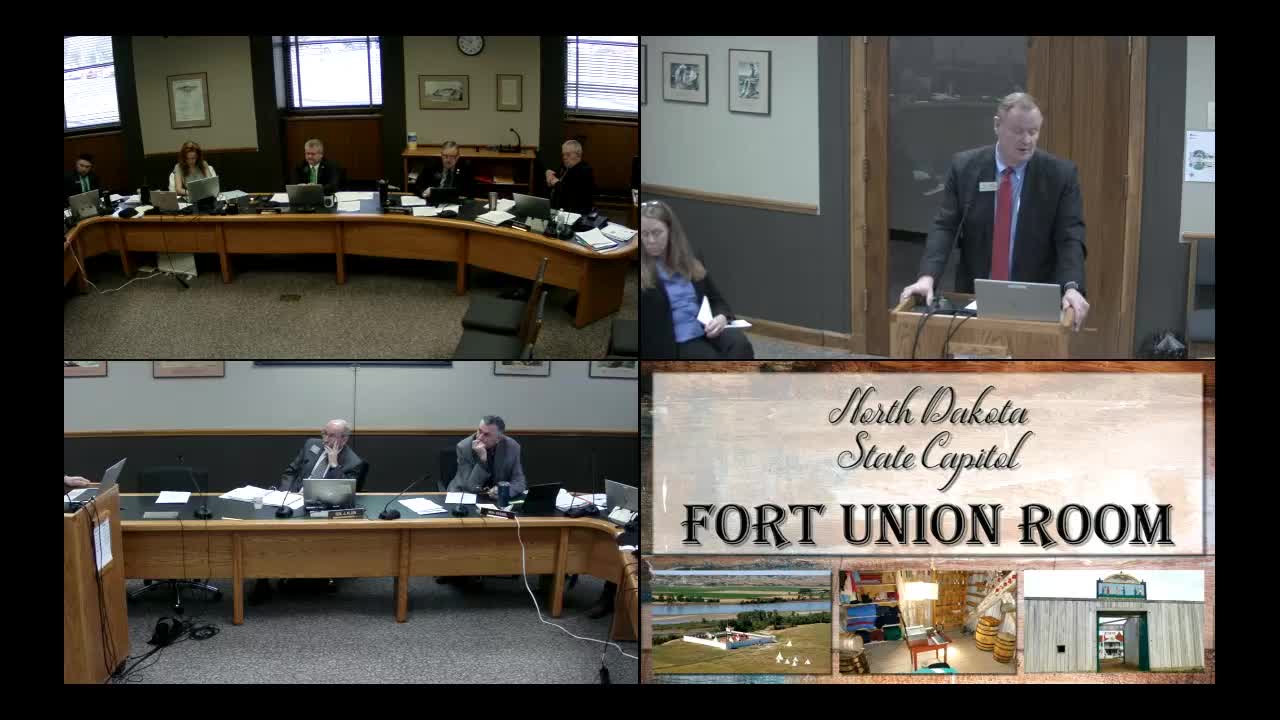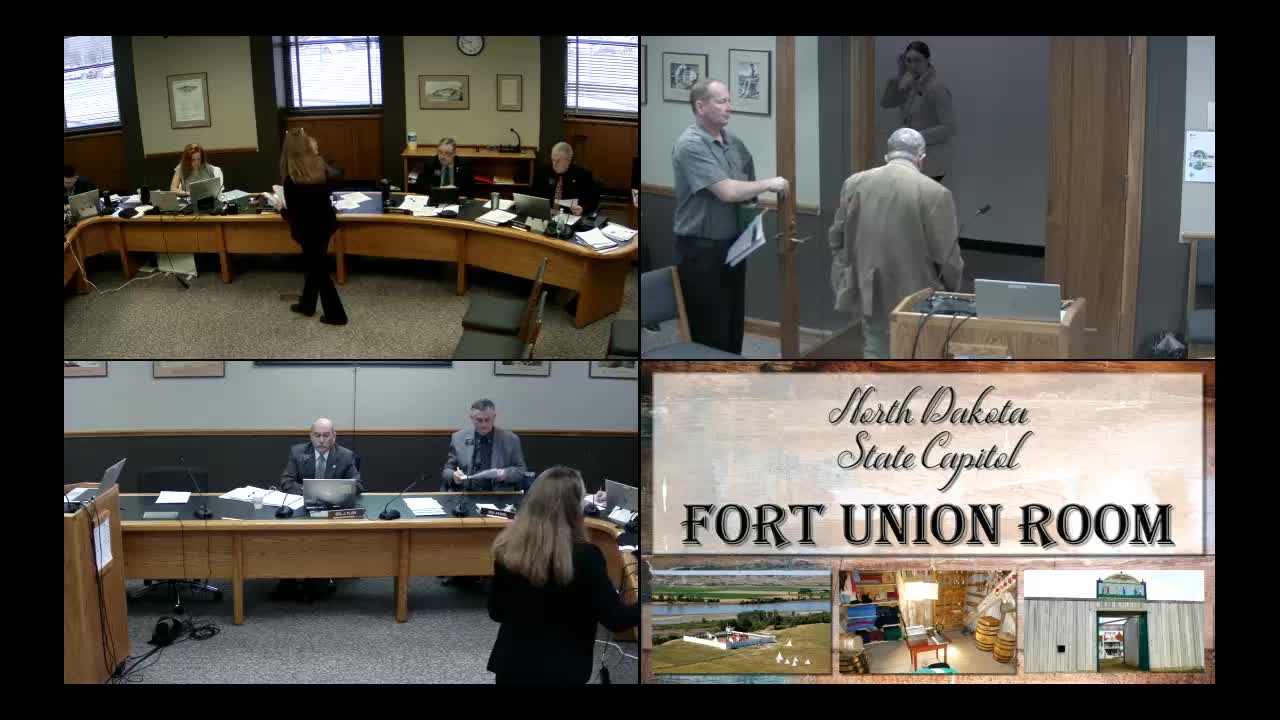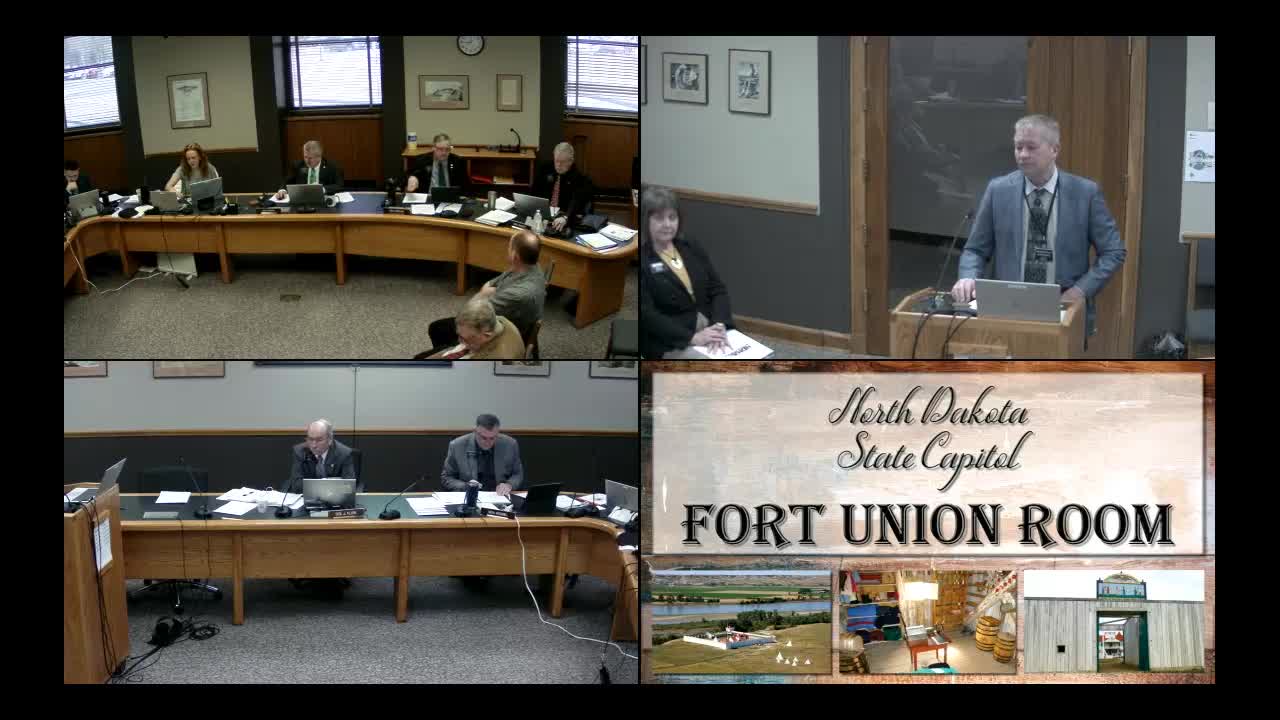Article not found
This article is no longer available. But don't worry—we've gathered other articles that discuss the same topic.

Lawmakers consider creating North Dakota–Ireland trade commission to boost ties with EU gateway

Bill would broaden use of cigarette‑testing fund, move collections to insurance trust fund

Committee hears updates to state unclaimed‑property law, adds virtual‑currency rules and data‑matching authority

